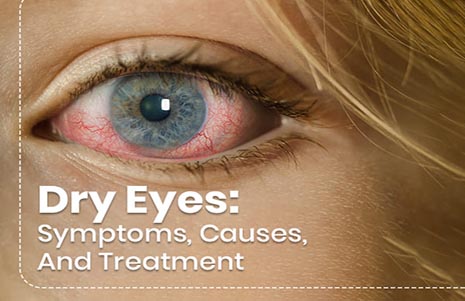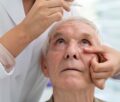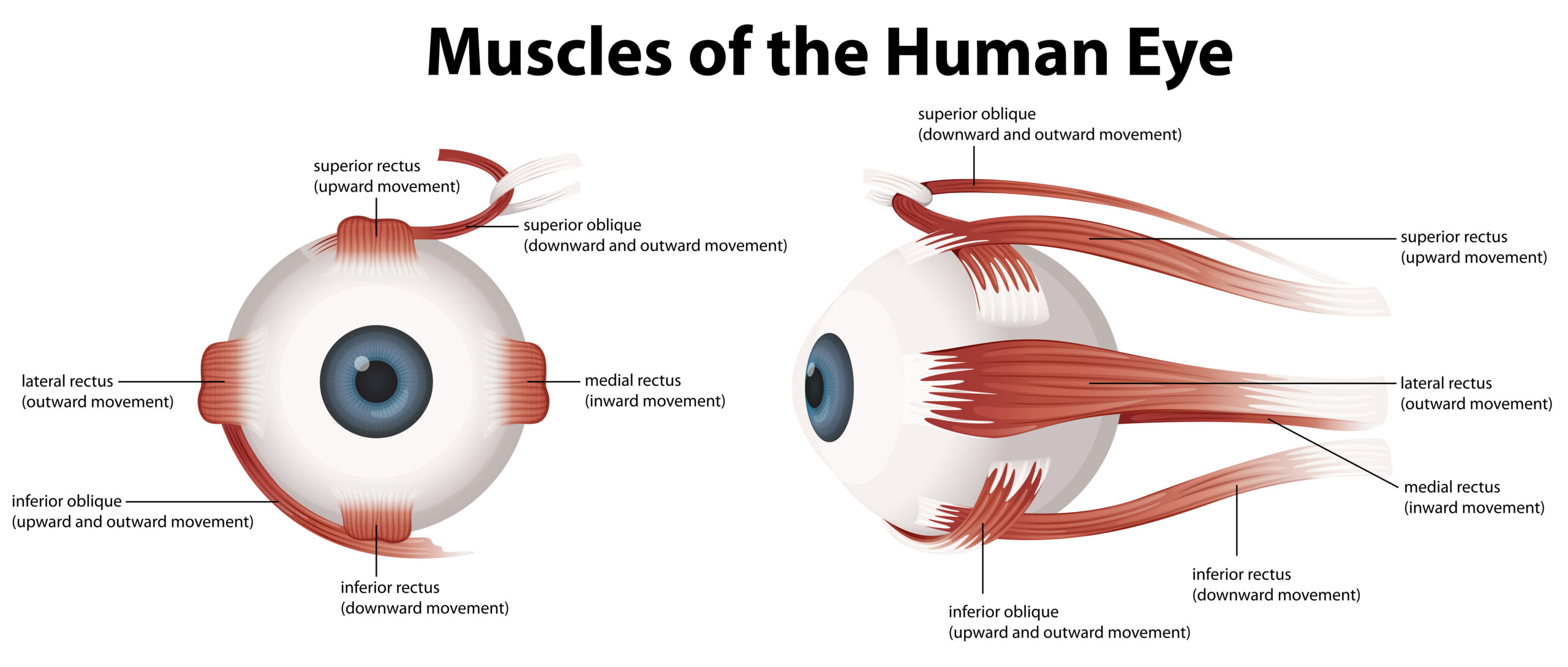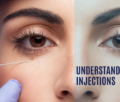Table of Contents
Struggling with dry eyes after cataract surgery? Here are some practical tips, home remedies, and expert advice on how to manage dry eyes and improve your recovery.
Cataract surgery is one of the most common eye surgical procedures. It involves removing the cloudy natural lens of the eye and replacing it with an artificial lens to improve vision. Although cataract surgery is generally safe and effective, it can cause some side effects, such as dry eyes.
Dry eyes after cataract surgery are a common complaint, affecting many patients during their recovery period. In this article, we will discuss the causes, symptoms, and management of dry eyes after cataract surgery, including some practical tips, home remedies, and expert advice from Dr Parth Shah to help you improve your recovery.
What is Dry eye?
Dry eyes is a commonly experienced symptom after cataract surgery, where the eyes lack sufficient lubrication, leading to symptoms like grittiness, burning, stinging and blurred vision. In the context of cataract surgery, this this can result from temporary nerve disruption during surgery, use of certain medications, pre-existing dry eye syndrome, or environmental factors. Management includes the use of artificial tears, punctal plugs, medications, and warm compresses to alleviate symptoms.
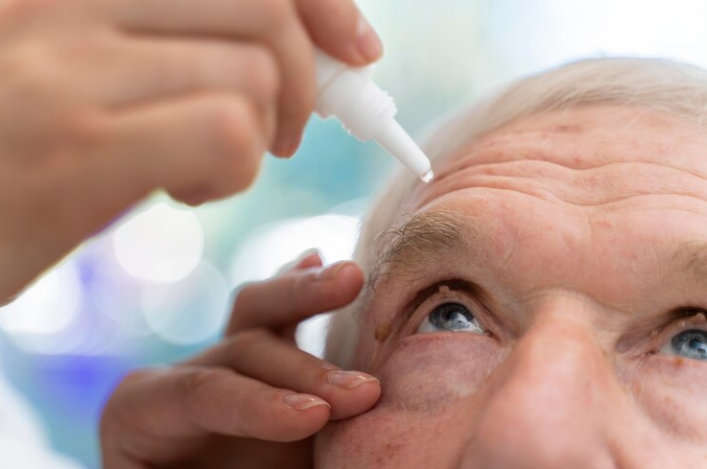
Causes of Dry Eyes after Cataract Surgery:
Dry eyes after cataract surgery can occur due to many different reasons, including:
- The use of anaesthesia and eye drops during surgery
- Postoperative medications, such as antibiotics and steroids
- Inflammation and swelling of the ocular surface
- Reduced blinking due to discomfort and sensitivity to light
- Environmental factors, such as air conditioning and dry weather
Symptoms of Dry Eyes after Cataract Surgery:
Dry eyes after cataract surgery can cause various symptoms, such as:
- Stinging or burning sensation in the eyes
- Gritty or sand feeling in the eyes
- Itching or redness in the eyes
- Blurred vision or sensitivity to light
- Watery eyes or excessive tearing
Tips, Tricks, and Home Remedies to Manage Dry Eyes after Cataract Surgery:
Here are some practical tips, tricks, and home remedies to help you manage dry eyes after cataract surgery:
- Use Artificial Tears: Artificial tears are eye drops that help lubricate the eyes and reduce dryness. They are available over-the-counter at pharmacies and some grocery stores. It is recommended to use preservative-free artificial tears, as they are less likely to cause irritation and allergic reactions. Use the drops as needed.
- Apply Warm Compresses: Applying a warm compress to the eyes can help relieve dryness and soothe the eyes. Use a clean cloth soaked in warm water and place it gently over closed eyes for a few minutes. Repeat as often as needed, but do not use hot water or apply too much pressure.
- Practise Good Hygiene: Keeping your eyes clean and hygienic can help prevent infections and reduce dryness. Wash your hands regularly and avoid touching your eyes with dirty hands. Use a clean towel and avoid sharing it with others. Also, avoid using makeup and cosmetics that can irritate the eyes.
- Use a Humidifier: Using a humidifier can help add moisture to the air and prevent dryness. Keep the humidifier in the room where you spend most of your time, such as your bedroom or living room. Make sure to clean the humidifier regularly to prevent the growth of bacteria and mould.
- Avoid Environmental Triggers: Environmental factors, such as air conditioning, wind, and dry weather, can worsen dry eyes. Avoid spending too much time in air-conditioned rooms and windy areas. Use protective eyewear, such as sunglasses, to shield your eyes from the wind and sun.
- Follow Postoperative Instructions: Following your ophthalmologist’s post-operative care instructions can help prevent complications and speed up your recovery. Use the prescribed eye drops and medications as directed. Avoid rubbing or touching your eyes, and avoid strenuous activities that can increase eye pressure.
- Blinking Exercises: Practise blinking exercises to keep your eyes moist. Blink slowly and fully for a few seconds, then open your eyes wide for a few seconds. Repeat.
- Hydration: Stay well-hydrated by drinking plenty of water. Hydration is essential for overall eye health.
- Limit Screen Time: Reduce prolonged periods of screen time, as it can contribute to dry eyes. Follow the 20-20-20 rule: every 20 minutes, look at something 20 feet (or 6 meters) away for at least 20 seconds.
- Sleep PositionSleep Position: If possible, sleep with your head elevated to minimise eye dryness during the night.
- Avoid Alcohol: Limit or avoid alcohol consumption, as it can contribute to dehydration, which may worsen dry eye symptoms.
- Quit Smoking: Smoking can worsen dry eye symptoms. Quitting smoking can have positive effects on your eye health and overall well-being.
What to eat to manage dry eyes after cataract Surgery?
After cataract surgery, it’s important to focus on a diet that promotes overall eye health and helps manage dry eyes. Here are some dietary recommendations:
- Omega-3 Fatty Acids: Include foods rich in omega-3 fatty acids, such as fatty fish (salmon, mackerel, trout), flaxseeds, chia seeds, and walnuts. Omega-3s have anti-inflammatory properties and can contribute to eye health.
- Vitamin A: Consume foods high in vitamin A, which is essential for maintaining the health of the cornea. Examples include carrots, sweet potatoes, spinach, kale, and butternut squash.
- Vitamin C: Foods rich in vitamin C, like citrus fruits, strawberries, bell peppers, and broccoli, can help support the health of blood vessels in the eyes.
- Zinc: Zinc plays a role in the metabolism of omega-3 fatty acids and can be found in foods like lean meats, dairy products, nuts, and whole grains.
- Stay Hydrated: Drink plenty of water to stay well-hydrated, as dehydration can contribute to dry eyes.
- Flaxseed Oil: Consider adding flaxseed oil to your diet, as it contains omega-3 fatty acids and may help alleviate dry eye symptoms.
- Avoid Trigger Foods: Some people find that certain foods exacerbate dry eyes. Common triggers include caffeine, alcohol, and spicy foods. If you notice a correlation between specific foods and increased dryness, consider reducing or eliminating them from your diet.
- Fruits and Vegetables: A diet rich in fruits and vegetables provides a variety of vitamins and antioxidants that support overall eye health.
FAQ
Q. How long does dry eye after cataract surgery last?
A. Dry eye after cataract surgery usually lasts for a few days to several weeks, depending on the severity of the dryness and the individual’s healing process. In some cases, it can take several months for the eyes to fully recover.
Q. Can I use over-the-counter eye drops to manage dry eyes after cataract surgery?
A. Yes, you can use over-the-counter artificial tear drops to manage dry eyes after cataract surgery. However, it is important to use preservative-free eye drops, as preservatives can cause irritation and allergic reactions.
Q. When should I see my eye doctor for dry eyes after cataract surgery?
A. You should see your eye doctor if you experience severe or persistent dryness, pain, or swelling in the eyes, or if you notice any changes in your vision. Your doctor may recommend additional treatment.
Q. How can I tell if my dry eyes are improving?
A. Improvement in dry eyes is often indicated by reduced discomfort, less redness, and improved tear production. Regular check-ups with your ophthalmologist will help monitor progress.
Q. Can hormonal changes, such as menopause, affect dry eyes after cataract surgery?
A. Hormonal changes, including menopause, can influence dry eyes. If you are experiencing such changes, discuss them with your ophthalmologist, as they may recommend additional measures to manage dry eyes during this time.
Q. Can allergies exacerbate dry eyes, and how can they be managed?
A. Allergies can contribute to dry eyes. Identify and avoid allergens when possible. Your ophthalmologist may recommend antihistamine eye drops or other measures to manage allergic reactions.
Q. Can I wear makeup after cataract surgery, and does it affect dry eyes?
A. It’s generally advisable to avoid eye makeup for a few weeks after surgery to prevent irritation. Consult your ophthalmologist for specific recommendations regarding the use of makeup during the recovery period.
Conclusion:
Dry eyes after cataract surgery can be a bothersome side effect, but it is usually temporary and can be managed with some practical tips, tricks, and home remedies. By using artificial tears, applying warm compresses, practising good hygiene, using a humidifier, avoiding environmental triggers, and following postoperative instructions, you can improve your recovery and minimise dryness in your eyes. If you have any concerns or questions about dry eyes after cataract surgery, talk to your eye doctor for personalised advice and guidance.
Author Bio
Dr. Parth Shah is a leading ophthalmologist in Canberra, specialising in cataract surgery. With extensive training and experience, he’s renowned for his expertise in the field. Dr. Shah is dedicated not only to performing successful surgeries but also to patient education. His compassionate approach, combined with technical proficiency, has earned him the trust and gratitude of countless patients. He’s a true advocate for eye health and a trusted name in the Canberra ophthalmology community.

